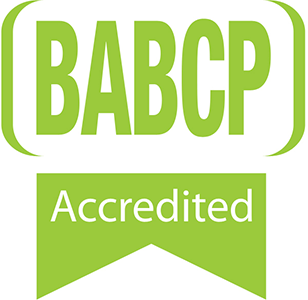OCD Counselling
Emerge from the shadow of OCD with our expert psychological counselling services, CBT designed to help reduce rituals and behaviour, provide insights and effective coping strategies; take that transformative step today towards a brighter, healthier tomorrow.
OCD Counselling & Therapy
Do you seem to be fighting against yourself constantly?
Fighting against the obsessions, ruminations (constant, unwanted, intrusive thoughts) and/or the urge, compulsion to do some action repeatedly?
(Carrying out ritualistic behaviour such as excessive checking, cleaning, or other).
“It takes up so much of my energy/time”.
Ritualised behaviours
Feeling compelled to do certain things (often for fear of what would happen if you didn’t)?
We can offer appropriate psychological therapy for compulsions, including hoarding or other.
Unwanted Intrusive Thoughts
Some of the most upsetting unwanted thoughts that keep coming include:
- thoughts of an aggressive or sexual nature;
- thoughts about socially inappropriate behaviour;
- thoughts leading to self-doubt and perhaps checking and;
- thoughts around cleanliness.
I Hate Having These Thoughts
Do you place too much emphasis on certain thoughts and ideas, compared to other people?
While most of us have unusual thoughts from time to time, for those really struggling with this type of problem, it’s so very unacceptable to have and emotionally wearing.
“It’s not like me to have such thoughts; it’s not who I am”.
Having doubt, for example, about if on your last drive, you ran over someone, can lead to:
- a high state of anxiety and difficulty thinking calmly about that likelihood,
- a wish to avoid having such thoughts again (perhaps leading to situational avoidance) or
- other ways to try to control and/or cancel out the potential associated harm.
Can I See A Clinical Psychologist for OCD?
Work with one of our non-judgemental Clinical Psychologists for OCD help (Obsessive-compulsive disorder or OCD difficulties).
Build up a good, trusting, accepting relationship. You can then bravely disclose your darkest fears.
This can be very helpful to overcome your difficulties with unwanted, intrusive thoughts or the urge to carry out ritualistic behaviour.
Depending on the nature of your difficulties, how long you have been doing something repeatedly, etc., you and your Clinical Psychologist are likely to agree on home practice tasks for between appointments too.
(Counselling for OCD is not the suggested way forward; Therapy is. The National Institute for Health and Care Excellence (NICE) has issued guidance).
Psychologist Counselling For OCD
If you’re looking for an experienced psychologist offering counselling for OCD, our clinical psychologists offer effective psychological therapy for OCD.
You can also contact us about available counselling appointments by clicking on the button below.
If you have a friend or family member with OCD and are trying to help, there are resources available, e.g. information at MIND.
You could be invited to join in with the appointments with the clinical psychologist and the person in difficulty or, if not, you could seek appointments yourself with a different clinical psychologist through us, for your own support.

Author
Dr Jurai Darongkamas
Jurai is a Consultant Clinical Psychologist who worked in Mental Health in the National Health Service (NHS), 1986 – 2019.
She now works part time alongside select colleagues offering high quality Psychological Therapies privately.
She is an Associate Fellow of the British Psychological Society (AFBPsS), an experienced trainer and supervisor; previously Lead in an NHS Trust for people with complex difficulties and Board Trustee.
Note
This page has been written to provide a brief overview for the reader. It should not be used as a basis for any action until after obtaining a professional opinion about your unique difficulties, strengths, circumstances, life history, etc.
Related Issues
External Resources
Client Testimonials
Clinical Psychology: FAQs
What is Clinical Psychology?
Clinical psychology is the scientific study of the human mind and behaviour. Its principles and theories are applied to help individuals, couples, families, groups, and organisations.
What is the training process for becoming a Clinical Psychologist?
Clinical Psychologists usually undergo 7-8 years of training, which includes obtaining a Psychology degree (usually 3 years), plus the doctoral degree in Clinical Psychology (usually 3 years).
Additionally, some relevant experience, such as working as an assistant psychologist, IAPT worker, nursing assistant, researcher, etc., is often required to secure a place on the Clinical Psychology training course.
What kinds of therapies can Clinical Psychologists offer?
Clinical Psychologists are trained in a wide range of psychological assessment, intervention, and therapies. They can offer a tailored approach to individuals, including integrative therapies, which combine two or more types of therapy in a theoretically coherent practical way.
How does the training of Clinical Psychologists compare to that of Mental Health Counsellors?
The training of Clinical Psychologists is much more extensive than that of most Mental Health Counsellors. In addition to their foundational training, many Clinical Psychologists go on to receive specialist training in particular approaches.
What are the main Psychological Therapy Approaches used?
We view each person as unique. Rather than use a label regarding which mental health problem you have, we work out with you what’s contributed/led to, the present difficulties and what’s the best way forward.
We offer a range of therapy approaches.
Sometimes, it is appropriate to offer an individualised, integrative approach (combining 2 or more in a theoretically coherent practical way).
We will advise you, out of many possible psychological approaches including:
- Cognitive Analytic Therapy (CAT),
- Cognitive Behavioural Therapy (CBT),
- Eye Movement Desensitisation and Reprocessing (EMDR),
- Experiential Dynamic Therapy (EDT),
- Compassion Focussed Therapy (CFT),
- Emotion Focused Therapy, etc.
How do I make an appointment for help?
To see one of our clinical psychologists, complete our brief, online form or call us on 0330 223 1844 for a free, no-obligation consultation where we will aim to help us fix a good day and time for you.
Click the following link below to see more information about the individual psychologists that work with us.
Who do you see?
We see individuals, couples and families.
Do you offer both online and in-person appointments?
We see people over the internet with some in same-room appointments, for talking therapy or psychological therapy remotely using Zoom.
Psychological therapy has been shown to be effective on-line – it is more than counselling over the internet.
As well as psychologists based across the UK, e.g., in Birmingham, Staffordshire, Shropshire, London, North of England and other areas,
What is the process involved when starting therapy with a Clinical Psychologist?
As seeing a Clinical Psychologist can be a very personal journey, you would normally first meet up to see if you can work together as client – psychologist, as two people.
The first, and any subsequent, session is charged at the rate for the psychologist you see.
The Clinical Psychologist will offer an assessment. That is, getting to know you to understand possible issues linked to how the difficulties started and how they persist.
This assessment will usually consist of asking you to share about your background, key family members (past and current), relationship history, and anything else you feel is significant.
How long do I see a Clinical Psychologist for?
How long you will meet for can be agreed between you and your Clinical Psychologist at the first /first few meeting/s depending on the help required, the clinical understanding reached and your preferences.
We would not offer to see you for longer than necessary.
Alternatively, you might choose to be seen for a few sessions (1-4) just for assessment.
After an assessment, you can be advised if psychological approaches could help you and the approach needed in the Clinical Psychologist’s opinion.
Will I be given information about the Clinical Psychologist?
How much does it cost to see a psychologist?
Clinical Psychologists have a wide range of experience. Depending on your specific needs and which Psychologist you see, the cost is usually in the range of £100-£140 per appointment. It depends on which person you decide to meet.
We can be more specific once we have considered your particular presenting needs.
We will always let you know the exact cost before you agree to meet.
What courses can I join to help me improve my psychological health?
From time to time, we also offer classes (courses and workshops) to those interested in learning skills in a group setting and meeting others. These cover areas such as: self-esteem, confidence, understanding more about interactions with others, understanding “rules” from childhood.
Please email letting us know of your interest and/or ask the person you see for more information about this. When we have the dates for our next course, information will be posted here.
How will my confidentiality be maintained?
We would normally ask you for details of your GP. We will agree with you whether you would like us to write to your GP to let him/her know that you seeing a Clinical Psychologist. We would normally prefer to write.
We take your GP’s details because, should the situation dictate and we become concerned for you welfare, then we would have to let him/her know. As part of our duty of care, we aim to tell you that we are doing so first.
We would usually only break confidentiality where absolutely necessary, for example, if we were informed that a crime was to be committed.
How are Clinical Psychologists regulated?
You are entitled to make a complaint about any Clinical Psychologist you are unhappy with to either the Health and Care Professions Council (HCPC) and/or the professional association for Clinical Psychologists, the British Psychological Society.
(The former was set up for the protection of the public and potentially can strike someone off the register so they cannot practice again in future, if found guilty of misconduct).
Many professional organisations have published codes of conduct and code of ethics.
All individual practitioners should carry professional indemnity insurance for their work. You can ask to see a copy of their up to date certificate.
What is your complaints procedure?
We hope, and expect, that you will receive an excellent service from our Clinical Psychologists.
However, in the event of you not being satisfied with the service you receive from your Clinical Psychologist, you have several options available to you, depending on your degree of dissatisfaction.
Please visit our complaints procedure page for more details.





